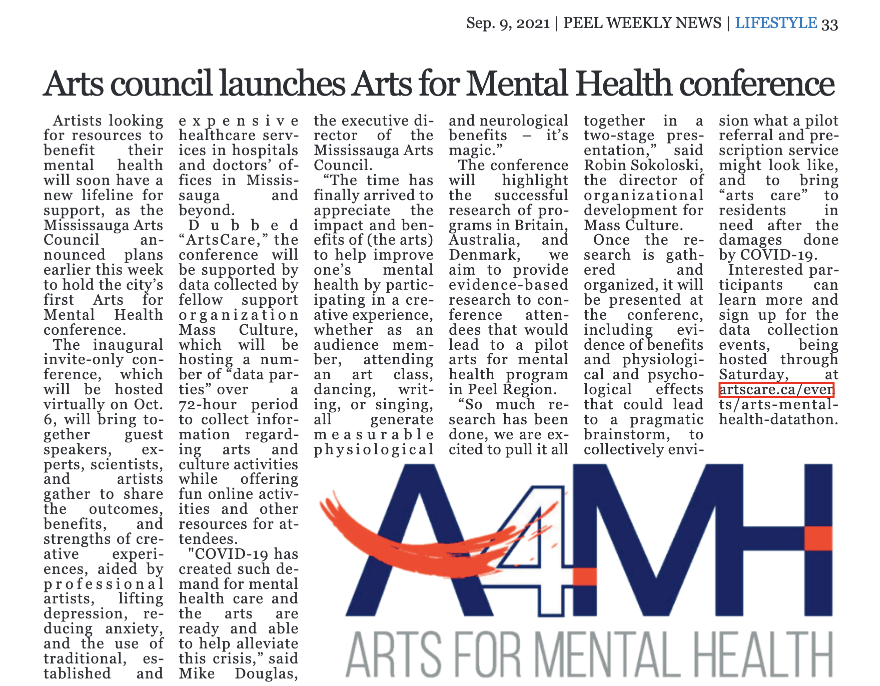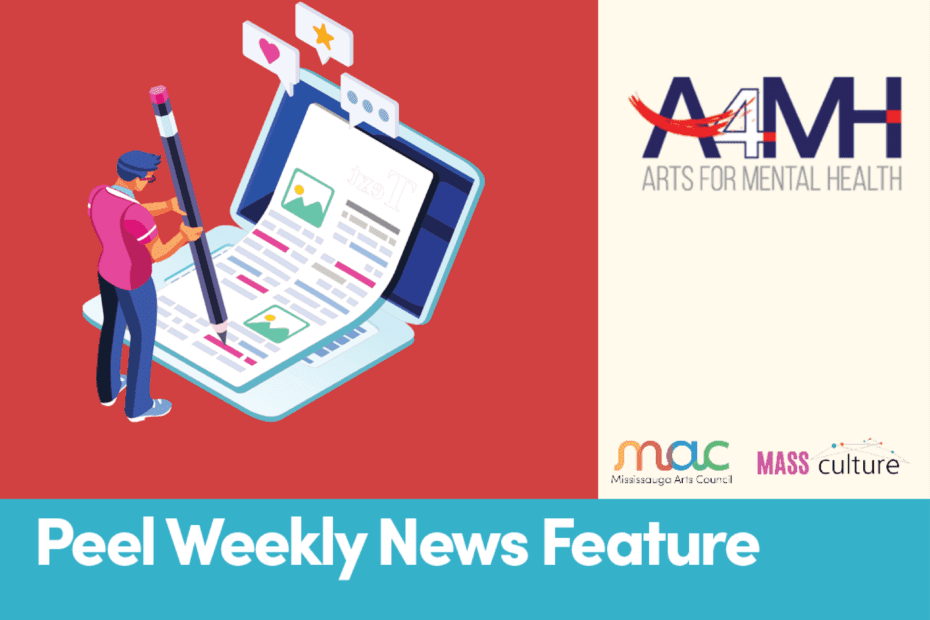Published on Peel Weekly News on September 9, 2021
Artists looking for resources to benefit their mental health will soon have a new lifeline for support, as the Mississauga Arts Council announced plans earlier this week to hold the city’s first Arts for Mental Health Conference.
The inaugural invite-only conference which will be hosted virtually on October 6, will bring together guest speakers, experts, scientists, and artists gather to share the outcomes, benefits, and strengths of creative experiences, aided by professional artists, lifting depression, reducing anxiety, and the use of traditional, established and expensive healthcare services in hospitals and doctors offices in Mississauga and beyond.
Dubbed “ArtsCare” the conference will be supported by data collected by fellow support organization Mass Culture which will be hosting a number of data parties over a 72-hour period to collect information regarding arts and culture activities while offering fun online activities and other resources for attenedees.
“COVID-19 has created such demand for mental health care and the arts are ready and able to help alleviate this crisis,” said Mike Douglas, Executive Director of MAC.
“The time has finally arrived to appreciate the impact and benefits of (the arts) to help improve one’s mental health by participating in a creative experience, whether as an audience member, attending an art class, dancing, writing, or singing, all generate measurable physiological and neurological benefits – its magic!”
The conference will highlight the successful research of programs in Britain, Australia, and Denmark, we aim to provide evidence-based research to conference attendees that would lead to a pilot arts for mental health program in Peel Region.
“So much research has been done, we are excited to pull it all together in a two-stage presentation” said Robin Sokoloski, the Director of Organizational Development for Mass Culture.
Once the research is gathered and organized it will be presented at the conference including evidence of benefits and physiological and psychological effects that could lead to a pragmatic brainstorm to collectively envision what a pilot referral and prescription service might look like and to bring ArtsCare to resident in need after the damage done by COVID-19.

